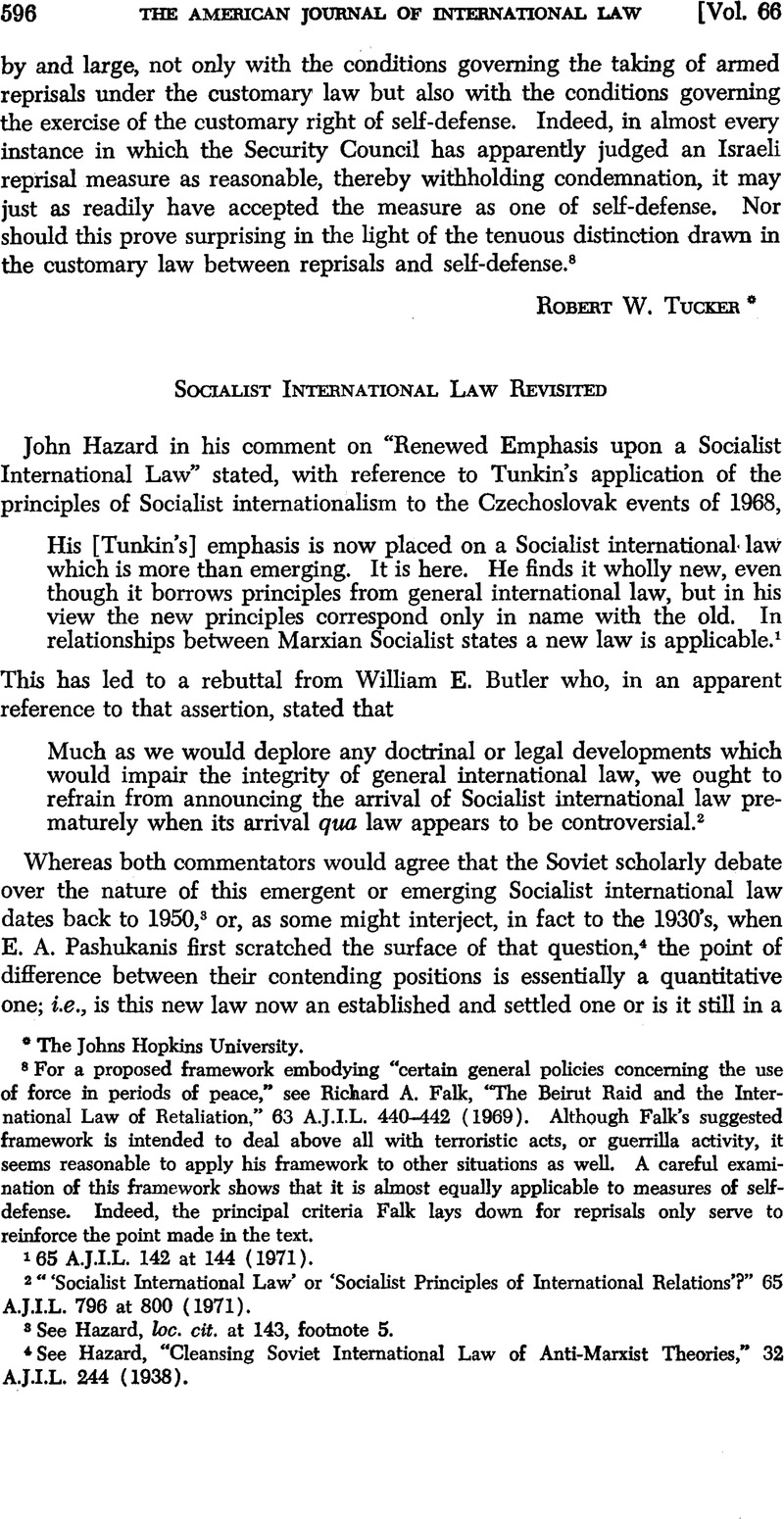Published online by Cambridge University Press: 28 March 2017

1 65 A.J.I.L. 142 at 144 (1971).
2 “ ‘Socialist International Law’ or ‘Socialist Principles of International Relations’?” 65 A.J.I.L. 796 at 800 (1971).
3 See Hazard, loc. cit. at 143, footnote 5.
4 See Hazard, , “Cleansing Soviet International Law of Anti-Marxist Theories,” 32 A.J.I.L 244 (1938)Google Scholar.
5 See G. I. Tunkin, Ideologicheskaia Bor’ba i Mezhdunarodnoe Pravo (Moskva, 1967).
6 G. I. Tunkin, Teoriia Mezhdunarodnogo Prava 503 (Moskva, 1970); see also, ibid. 504.
7 Tunkin, ibid. 504.
8 Tunkin, ibid. 504–505.
9 Ibid. 505.
10 Ibid. 506.
11 Ibid. 503.
12 Tunkin, ibid. 496.
13 Ibid. 491.
14 Tunkin, ibid, at 499–502. In another article Tunkin traces the evolution of the principle of Socialist internationalism as follows: It first evolved as the principle of proletarian internationalism, i.e., as a principle of the international workers’ movements; with the formation of the Socialist commonwealth of nations and through a consistent application of this principle to relations between the Communist Party-dominated governments of Eastern Europe, it acquired new historical contents as it now took up its new rô1e as a principle of inter-state relations; as these principles found their way into inter-state agreements and treaties, they acquired yet a new role as principles of a new type of international law without necessarily losing their original character as principles of inter-Communist Party relations. See Tunkin, “V. I. Lenin i printsipy otnoshenii mezhdu sotsialisticheskimi gosudarstvami,” Sovetskii Ezhegodnik Mezhdunarodnogo Prava (SEMP) 1969, pp. 19–29.
15 Tunkin, SEMP 1969, p. 28.
16 See G. I. Tunkin, Voprosy Teorii Mezhdunarodnogo Prava (Moskva, 1962).
17 William Butler holds a different view on this question. See Butler, loc. cit. 799.
18 Tunkin, SEMP 1969, p. 28.
19 William Butler, loc cit. 797.